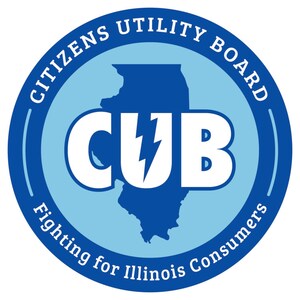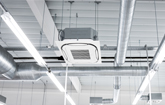
CONSUMER ALERT: CUB RELEASES WINTER-SAVING TIPS
CHICAGO, Nov. 10, 2022 /PRNewswire/ -- With consumers facing higher heating bills this winter due to skyrocketing natural gas prices and aggressive utility spending, the Citizens Utility Board (CUB) on Thursday released tips to help consumers get through an expensive winter.
The watchdog has set up a special online resource, CUBHelpCenter.com, which explains why gas bills are high and offers safety and efficiency tips. In its Short-Term Energy Outlook in November, the Energy Information Administration estimated that Midwest natural gas customers could pay about 30% more to heat their homes this winter, compared with last.
The chart shows the residential gas prices of major Illinois utilities as of Nov. 1, compared with last year and 2020.
Utility |
Nov. 2022 |
% change from Nov. 2021 |
% change from Nov. 2020 |
Ameren Illinois |
80.75¢ per therm |
19% increase |
139% increase |
Nicor Gas |
$1.14 per therm |
68% increase |
307% increase |
North Shore Gas |
72.48¢ per therm |
6% increase |
87% increase |
Peoples Gas |
71.16¢ per therm |
4% decrease |
155% increase |
Note: Gas utility supply prices can change monthly. Utilities do not profit off supply prices. They pass those costs onto customers with no markup.
"We are concerned consumers who are stressed about their utility bills will take risks to lower their costs," CUB Executive Director David Kolata said. "The safest, most reliable way to fight these price spikes is through energy efficiency—it's about keeping your home safe and warm, and your bills more affordable. We're asking all Illinois consumers to look out for each other and make sure friends, family and neighbors are staying safe and warm."
Kolata said there are two reasons for the high heating bills:
Spiking natural gas supply prices. Natural gas prices go through periodic price spikes, and this one was first sparked by an extreme cold snap in 2021 that for a time froze gas in wellheads and pipelines, limiting supply just as demand went up. Since then, the high prices have been propped up by other developments, including the Russian invasion of Ukraine.
Aggressive utility spending on the delivery side of bills. In recent years, utilities have launched aggressive spending programs that have increased the delivery charges on bills. That's what we pay the utility to deliver gas to our homes–plus a profit for the company. In previous years, when gas prices were lower, the impact of utility spending wasn't as noticeable.
In 2013, the General Assembly allowed major gas utilities (Peoples Gas, Nicor Gas and Ameren) to add the Qualified Infrastructure Plant (QIP) surcharge to consumer bills. The QIP helps them bring in revenue more quickly and easily than through a traditional 11-month rate case. With Peoples Gas, the surcharge is up to about $15 a month for the average household. In addition to the surcharge, Nicor Gas has aggressively pursued record-high rate hikes in recent years, raising delivery rates by more than $500 million since 2018.
CUB and other consumer advocates have been on a years-long campaign urging the General Assembly to end the surcharge and put more regulatory control on gas utility spending. Kolata said the recent efforts by the City of Chicago to move to cheaper and cleaner forms of heating than natural gas are a big step in the right direction. "Natural gas is simply unsustainable from an environmental and affordability perspective," he said.
CUB issued the following tips for consumers:
See if you qualify for energy assistance. The application process for the Low Income Home Energy Assistance Program (LIHEAP) has reopened through May 31, 2023, or until funds are exhausted. Households at or below 200% of the federal poverty level are eligible for LIHEAP funding. To apply or learn more, visit www.helpillinoisfamilies.com or call the Help Illinois Families Assistance Line at 1-833-711-0374.
Stay in contact with your utility. Consumers who are struggling should contact their utilities to see if they qualify for other energy assistance, inquire about payment plans to pay off debt and learn about energy efficiency programs. Keep the lines of communication open.
Beware of alternative supplier rip-offs. Alternative gas suppliers are impacted by the same market conditions that are causing utility prices to increase, so be careful about getting lured into bad deals. Be wary of low introductory rates that will skyrocket after a short period, and read the fine print for add-on fees that can raise the cost of the plan. If a deal seems too good to be true, there's a good chance it is. Even in this market, it's likely the utility is your best bet. (Note: Only consumers in Northern Illinois have gas choice.)
Energy efficiency is key this winter. Simple actions at home could help control costs:
- In cold weather, set your thermostat at a safe level: 68°F when you're at home and awake. When you're asleep or away, turn your thermostat down 7° to 10°F. Never let your thermostat drop below 55 degrees, as you could freeze your water pipes.
- Schedule a heating-system inspection with a reputable HVAC contractor. Most systems last 10 to 15 years but can last longer and run more efficiently with maintenance. An inspector can check your system to ensure everything is working properly.
- Weather-strip doors, caulk windows and install storm windows if you have them. A door guard or sweep can help fill the gap at the bottom of your front and back doors. You can find most of these items at local hardware stores.
More tips are at CUBHelpCenter.com.
CUB is Illinois' leading nonprofit utility watchdog group. Created by the Illinois Legislature, CUB opened its doors in 1984 to represent the interests of residential and small-business utility customers. Since then, CUB has saved consumers more than $20 billion by helping to block rate hikes and secure refunds. For more information, call CUB's Consumer Hotline at 1-800-669-5556 or visit CUB's award-winning website, www.CitizensUtilityBoard.org.
SOURCE Citizens Utility Board







Share this article